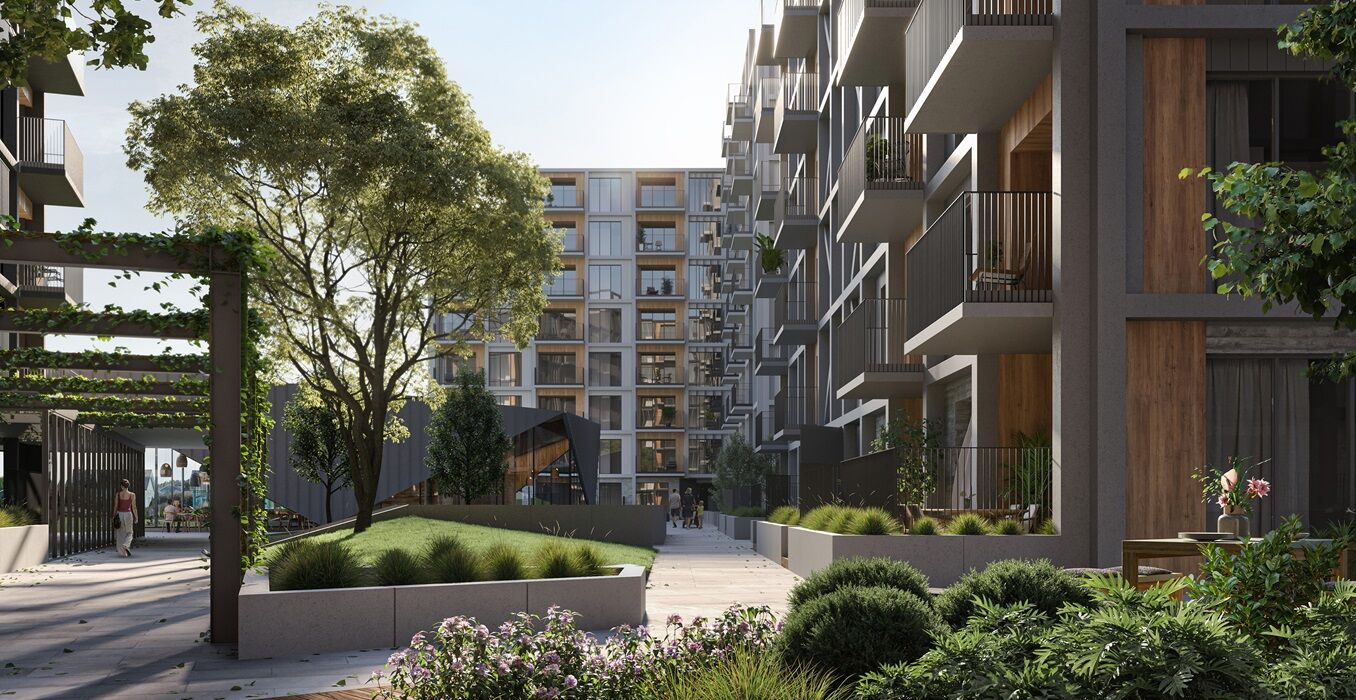 Artist's impression
Artist's impressionCommercial -
Efficiency a critical priority, say BTR leaders
Changing lifestyles and a lack of affordable housing have spurred a surge of interest in the global Build-to-Rent (BTR) sector, which, according to the sector's leading authorities, offers stakeholders an opportunity to reshape New Zealand’s housing market.
This and other topics, including environmental, social and governance (ESG), were atop the agenda at the New Zealand Green Building Council (NZGBC) Housing Summit 2024, where representatives gathered to share ideas in a discussion chaired by Bayleys director of strategic advisory Paula Bennett.
The leaders say that BTR is thriving as an asset class internationally with significant potential to help address New Zealand’s housing shortfall, particularly amid high net migration and pressure on the development pipeline.
“Given New Zealand’s comparatively small scale and a reliance on global capital, the conversation has traditionally centred on attracting institutional investment players to kickstart these projects.
“Excitingly, several local providers have moved into the development phase of their projects, shifting the focus from ‘How do we attract investment’ to ‘How do we increase building efficiency?’” Bennet says.
One such community bringing building efficiency to the fore is Moroki in the East Auckland suburb of Glen Innes by BTR developer New Ground Capital.
Managed in partnership with iwi-owned housing collective Hāpai Housing, the 50 residences have been offered to tenants with long-term leases of up to 10 years. Each dwelling has gained Homestar certification from the NZGBC.
The developer says its homes use 40 percent less power and water than homes of similar sizes built to New Zealand Building Code standards.
New Ground Capital co-founder and managing director Roy Thompson says that by adopting a whole-of-life approach to the design, build, and management process, the business creates operational efficiency through continuous improvement, ultimately increasing tenant satisfaction.
Not-for-profit fund manager Simplicity Living – one of New Zealand’s leading institutional BTR investors – attributes its success to a similar consistency in manufacturing rather than following ‘green’ building trends.
The producer has recently commenced work on its biggest BTR project to date: the 297-unit Reiputa community in Auckland’s Mount Wellington.
Co-founder and managing director Sam Stubbs says the organisation is focused on the standardisation New Zealand saw post-war, when we produced some of the highest numbers of new homes in history.
Using this ethos, Simplicity Living is building homes 35 percent cheaper and between 30-50 percent faster than the general market, at an average cost of $550,000 per unit – including land, furnishings and whiteware.
Cost savings are primarily driven by the organisation’s ‘vertically integrated’ business model, which Stubbs says has brought design, production, and asset management in-house.
New Zealand Green Building Council (NZGBC) chief executive Andrew Eagles says it is encouraging to see New Zealand’s BTR players elevating their products with ESG efficiencies, positively impacting both sustainability and financial performance.
“In delivering lower energy homes that are climate resilient and supportive of the way Kiwis want to live, work and play, BTR developers are leading an important movement that confirms to investors the cruciality of ESG principles.”
Investors, however, are not the only stakeholders receiving an education in BTR benefits.
Major BTR player Kiwi Property says that over the last two years, the domestic market has matured significantly, as action from the new Government has moved from helping to support the asset class in theory to making it a reality.
Kiwi Property general manager of asset management Linda Trainer says the business has seen positive interest in its three-tower, 295-apartment Sylvia Park community Resido. However, the sector is challenged to change the perception of renting in New Zealand.
Trainer says that significant work remains to educate the market about the benefits of BTR and that traditional bugbears can be addressed with high-quality properties, secure long-term tenancies and transparent periodic rental costs.
In its recently released BTR Tracker tool, Property Council New Zealand (PCNZ) says there are currently 1,449 complete, 822 under construction, and 3,376 units in the development pipeline across 57 developments, predominantly focused in Auckland.
“These numbers show an appetite for continued investment in the sector. However, potential investors need consistent legislation that provides certainty and signals that New Zealand is open for the business of BTR,” says PCNZ chief executive Leonie Freeman.
“There are current limitations within OIA legislation, the Income Tax Act, and the tax treatment of BTR developments, and we look forward to seeing how pending changes will help to attract the global capital necessary for medium-to-large-scale housing investment in BTR assets.
“Just as developers have a crucial role to play in creating thriving, climate-positive communities, the Government has a critical role to play in the legislature to further unlock the potential of BTR in New Zealand. Put simply, we’re all in this together,” she says.
This article first appeared in Bayleys’ Total Property portfolio.